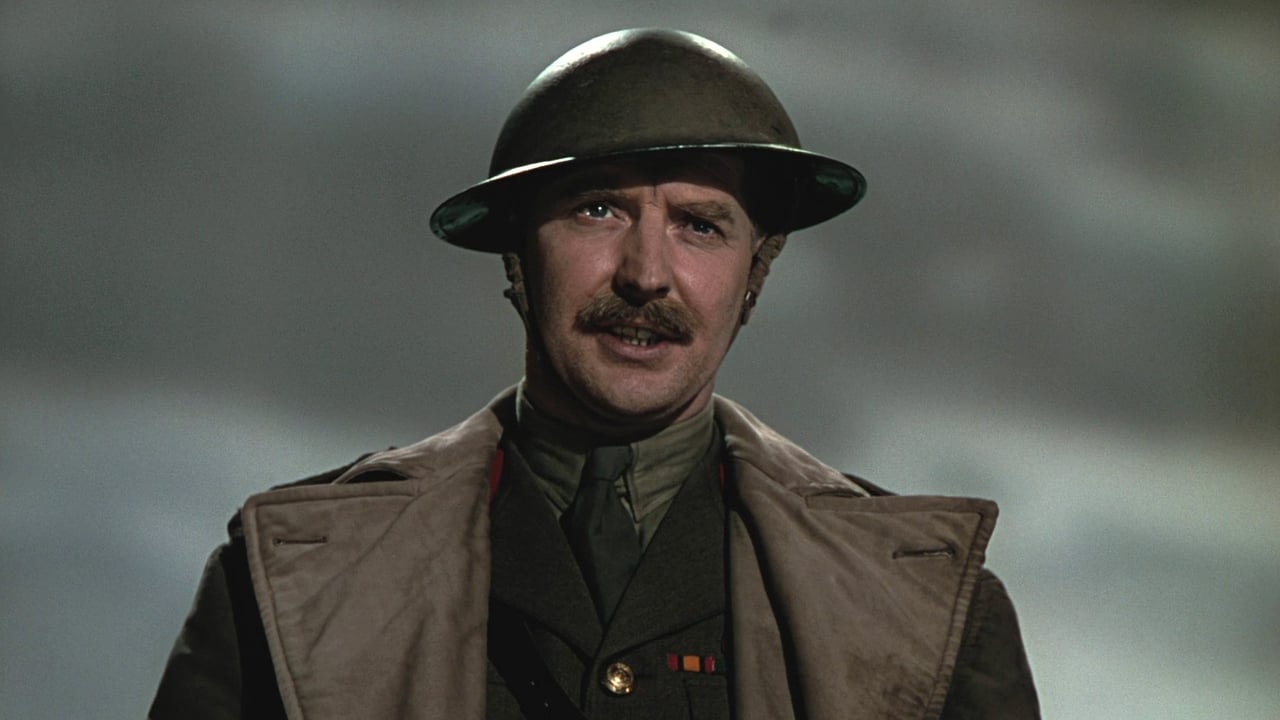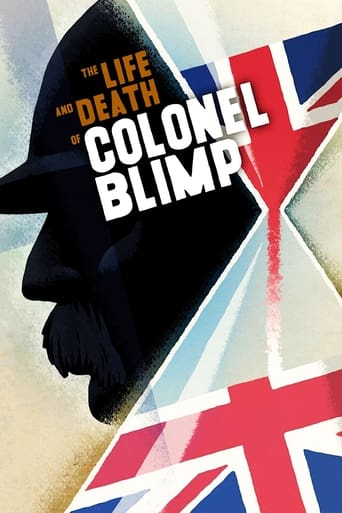ThiefHott
Too much of everything
Comwayon
A Disappointing Continuation
Aspen Orson
There is definitely an excellent idea hidden in the background of the film. Unfortunately, it's difficult to find it.
tomgillespie2002
Colonel Blimp started life as a satirical cartoon for the London Evening Standard by Sir David Low. An ageing, plump, pompous and eternally red-faced blowhard, Blimp was Low's idea of the militaristic upper-classes; the kind of chest-puffing Jingo who would voice his frequently contradictory declarations from a Turkish bath wearing nothing but a towel. At first, it would seem that Michael Powell and Emeric Pressburger's The Life and Death of Colonel Blimp is directly adapting the political cartoons, as the old man Colonel is rudely disturbed from his sleep in a Turkish bath by a group of youngsters who have arrived early for a planned war game, to declare that such chivalry in war will not be practised by the enemy. We then go back 40 years, and any hint of satire makes way for a story of romance, friendship, and growing old.During the Boer War in 1902, the young Clive Candy (Roger Livesey) receives a letter from Edith Hunter (Deborah Kerr) in Berlin, who warns him that a known rogue named Kaunitz is spreading anti-British propaganda. Going against orders, Candy travels to Germany and ends up causing a scene by provoking Kaunitz. To settle matters, a duel is arranged with a randomly-chosen German officer, who turns out to be Theo Kretschmar-Schuldorff (Anton Walbrook). While recovering from their wounds in a military hospital, the two men hit it off and begin a friendship that will last for more than 40 years. Moving through the First and Second World Wars, we follow Candy as he rises through the military ranks, fails and succeeds in love, before finding himself an old man, greatly outdated and socially displaced.It's astonishing that this film got made at all. On top of being rather experimental in terms of tone and narrative structure (it feels very much like the English equivalent of Citizen Kane), Colonel Blimp was shot in glorious - and expensive - Technicolor during wartime, running at almost three hours when most films wouldn't dare to push 100 minutes. Winston Churchill tried to ban it, believing it to be an anti-war propaganda piece poking fun at the idea of 'British-ness', when it is anything but. Instead, the film deliberately gives out mixed signals, lovingly embracing the idea of gentlemanly conduct during a bloody war, while pondering the necessity of brutality, especially when faced with an enemy who play like the Nazis did (and were doing at the time, of course). While British propaganda was making sure to send a clear and strong message about the enemy, Colonel Blimp makes one of its main characters a sympathetic German, and is clear to highlight that these nations will be friends again in the future.Livesey is staggering as Candy (who later becomes Wynne-Candy). The make-up work is absolutely flawless, easily trumping the big Hollywood productions we get these days. The man genuinely ages before our eyes, and Livesey manages to entirely convince as a man gaining experience and weariness through the years. He may be a man whose values are slowly becoming obsolete, but he remains a good man, and a thoroughly lovable one. Walbrook delivers an understated performance, and brings a tear to the eye during a monologue in which tries to convince British officials why they shouldn't deport him back to Nazi Germany, and Kerr juggles three roles - as Candy's lost love Edith; his wife Barbara; and his driver 'Johnny' in his later years - with absolute ease. It has remarkable scope yet is incredibly intimate, and it's a film that should have been branded across every cinema screen in the country by the War Office. Quite possibly the finest film ever to emerge from our rainy shores.
grantss
It is World War 2 and Major General Clive Wynn-Candy is a senior officer in the Home Guard. He seems the stereotypical English General - old-fashioned, play by the rules, and drastically out of touch. Through flashbacks we see his Army career, from its early days onwards, and it wasn't always so. Wonderful, interesting, moving movie. The life of a military officer, his loves, regrets, how the times change around him, and how he adapts to them, or not. The movie starts rather frenetically, which was off-putting, but once it settles down it is a wonderful movie. Roger Livesey is great in the lead role, but it is the amazingly beautiful Deborah Kerr (in three roles) who steals the show.
evanston_dad
A very odd and fascinating film tracing the military career of a hotshot Englishman.That the film is both odd and fascinating should come as no surprise to anyone, since it was created by the team of Michael Powell and Emeric Pressburger. While watching the film, I felt its length and checked my watch a couple of times. But days after I'd seen it, I found myself thinking back on it, and I realized how much I liked it. It's the kind of movie I want to see again, because I have a feeling it would grow richer with multiple viewings.Roger Livesey gives a spectacular performance as the main character, authentically maturing and aging before our eyes from young go-getter to old man being left behind by changing times. Deborah Kerr is also radiant and lovely (was she ever not?) in fulfilling one of the film's most charming conceits -- she plays different women who come in and out of the life of our hero but who all remind him of his first and true love.The movie makes some pretty shocking points about war given that it came out while WWII was raging. So many war-themed films of the time were propaganda pieces designed to make the Allied Forces feel heroic and noble for stepping up against evil forces. But this movie suggests there is no such thing as a gentleman's war, that war is ugly and that one side has to be willing to fight uglier and dirtier than the other to ensure victory.A mesmerizing film.Grade: A
hylinski
This film is pure magic. It fully deserves to be in any list of the Top films of all time. That it was made during the second world war yet treats its topic with objectivity, humour and humanity places it in the category of true art. The story is engrossing, the characters so real that I find that no time at all seems to have passed between the beginning and the end titles. Roger Livesay characterises the many faces of Colonel Wynn-Candy with immense panache and an authenticity which amazes me. The cast provides the perfect backdrop for "Blimp" to realise that his time has passed, and the rules he considered ran the world are no longer valid. He is one of the iconic characters in cinema history, in the same class as Rick Blaine, Inspector Clouseau and Charles Foster Kane. It is pleasing to see that no-one has had the effrontery to try and re-make this classic. Watch this film.

